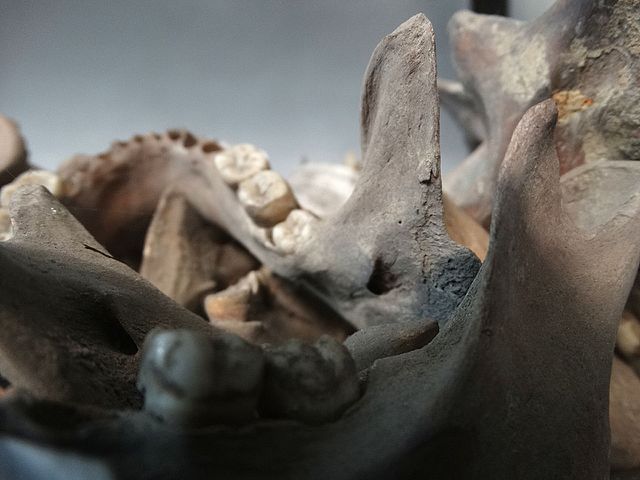The Liberation War Museum is a museum at Agargaon in Dhaka, the capital of Bangladesh, which commemorates the Bangladesh Liberation War that led to the independence of Bangladesh from Pakistan.
Liberation War Museum - মুক্তিযুদ্ধ জাদুঘর
The Jallad Khana memorial at one of the killing fields in Mirpur is maintained by the museum.
Exhibition from the old premises of the LWM containing human remains and war materials.
The 'Sucker'wfp21' art project of artist Firoz Mahmud was partially collaborated by the Liberation War Museum & EMK center Bangladesh–United States relations. Exhibited at Aichi Arts Center, Nagoya, Japan & EMK center, Dhaka
The Bangladesh genocide was the ethnic cleansing of Bengalis, especially Bengali Hindus, residing in East Pakistan during the Bangladesh Liberation War, perpetrated by the Pakistan Armed Forces and the Razakars. It began on 25 March 1971, as Operation Searchlight was launched by West Pakistan to militarily subdue the Bengali population of East Pakistan; the Bengalis comprised the demographic majority and had been calling for independence from the Pakistani state. Seeking to curtail the Bengali self-determination movement, erstwhile Pakistani president Yahya Khan approved a large-scale military deployment, and in the nine-month-long conflict that ensued, Pakistani soldiers and local pro-Pakistan militias killed between 300,000 and 3,000,000 Bengalis and raped between 200,000 and 400,000 Bengali women in a systematic campaign of mass murder and genocidal sexual violence. In their investigation of the genocide, the Geneva-based International Commission of Jurists concluded that Pakistan's campaign involved the attempt to exterminate or forcibly remove a significant portion of the country's Hindu populace.

Corpses of Bengali nationalist intellectuals killed in Dhaka in December 1971, photographed by Rashid Talukdar
Human remains and war materiel from 1971 genocide in Liberation War Museum
Pile of bones of those killed in the Bangladesh Genocide
President of Pakistan Yahya Khan with United States President Richard Nixon, 1970.







